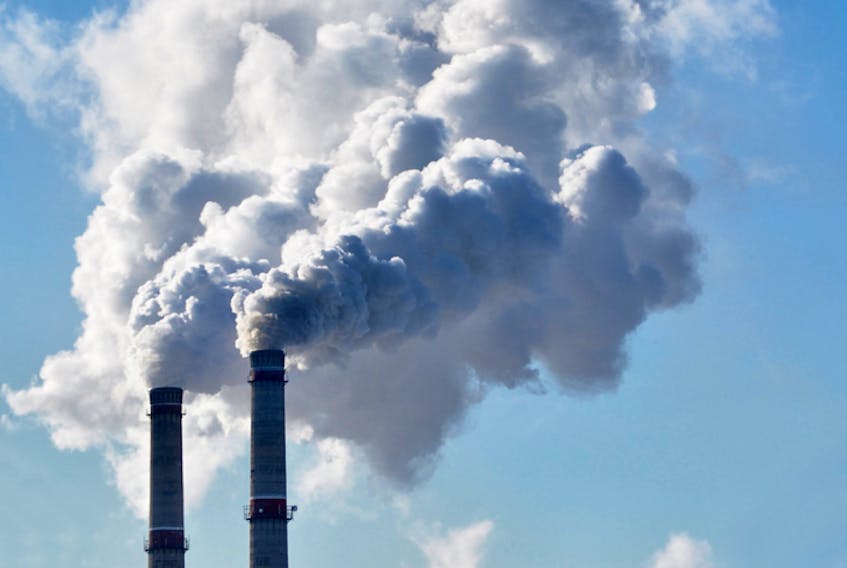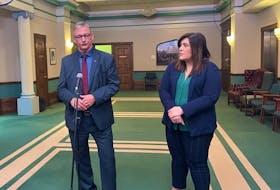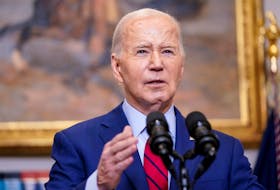The government of Newfoundland and Labrador is keen to emphasize how their new carbon pricing plan will cost consumers almost nothing, as price increases on gas in the first year are offset by the elimination of existing gas taxes and home-heating fuel will be exempt from the tax.
Large swathes of industry (agriculture, fishing, forestry, offshore and mineral exploration) are also being protected from tax altogether.
But this just plays into the hands of those who misrepresent carbon taxes as a new tax grab.
The purpose of a carbon tax is to change behaviour in order to save the planet (and our province) from potentially devastating climate change, not to raise revenue and the best way to ensure it works for all would be to hand the money raised back to consumers (as the federal government would do).
But a tax that does not make spending on high carbon activities noticeably more expensive than alternatives is not doing its job.
It was disappointing to hear Minister Andrew Parsons suggest that rebates would just represent consumers “getting their own money back” when under the federal scheme average households would receive more than they pay (because of contributions from business) and could gain still more by finding ways to reduce their carbon emissions.
Instead, thanks to rising electricity prices and the heating-fuel tax exemption there is a risk that Newfoundland and Labrador consumers will actually move backwards, replacing electric heat with oil furnaces for example, and there will be no incentive for anyone to switch to electric vehicles.
The government’s own projections say its plan will reduce carbon emissions by 1.7 million tons in total, between 2019 and 2030 from where they would have been without it — around 150,000 tonnes a year.
This reduction is just 1.4 per cent of the 10,600,000 tonnes we now emit annually. When Holyrood power station is decommissioned, it will save 1.2 million tonness of carbon emissions a year — a much larger contribution than any action in the plan — but even including that we would only be reducing our emissions to about per cent per cent less than 2005 levels, when Canada has declared a target of emissions reductions of 30 per cent in 2030 from that level.
If the government were successful in its Advance 2030 plan to double offshore oil production our emissions would undoubtedly go up, not down.
It is hard to understand why the federal government approved this plan unless it was because it did not want the embarrassment of a squabble with a fellow Liberal government, and it’s hard to see how Parsons can say with a straight face that “we need to change drastically” while unveiling such a weak plan.
To achieve Canada’s stated climate goal in our province, we would need to reduce our carbon emissions in the province by 4.3 million tonnes a year by 2030 — more than three times the reduction we are projected to achieve even with Holyrood’s emissions removed. And we Newfoundlanders are twice as bad as the global average in greenhouse emissions per head — worse than all other major countries except gulf oil states.
If you think climate change is just a problem for other people, you need look no further than the recent news about declining fish stocks on the south coast — DFO believes climate change is already a significant factor in that decline. MUN scientists also suggest we could see sea levels rise here by a metre or more with more rain and consequent flooding problems to cope with.
And if you think Newfoundland is too small to make any difference to the world’s climate, consider this — if we did reduce our carbon footprint as we should, by 2030 we’d save as much in carbon emissions as 2.5 million people in India use every year.
While there are other regions and countries which contribute much more to climate change, it is hard for Canada to make a case for restraint — particularly among developing countries — when we seem so unwilling to act ourselves.
David Brake
St John’s
Related stories:
Federal carbon tax rebates will exceed the cost for most people affected









